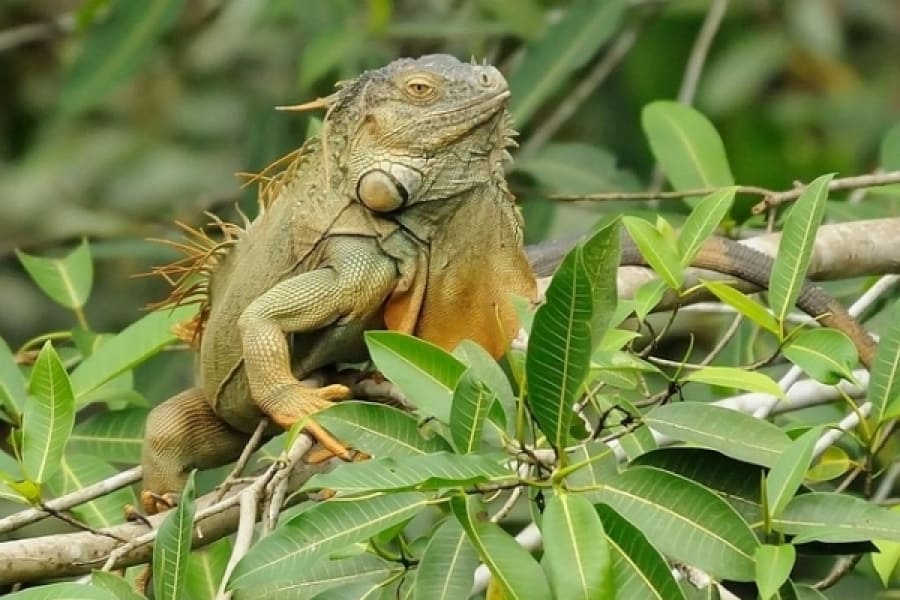
Scientific Name
- The scientific name of Green Iguana is Iguana iguana.
Description
- Iguanas are certainly one of the most popular lizards to be kept as pets (probably one of the world’s most popular pet reptiles).
- Easy to keep as long as a large area is provided.
- Iguanas are one of the more recent “fad” pets, becoming readily available in many pet stores, often at very low prices.
- These are young iguanas that don’t seem to be too difficult to care for, a myth often perpetuated by retailers hoping to sell them. Of course, they are very cute too!
- Similar to other reptiles, iguanas have fairly strict feeding and housing requirements.
- When they grow up, they are often very large in size (if they survive), and they can be difficult to tame and always become aggressive.
- This is not to say those iguanas cannot make good pets – but they need the proper care right from the start, and owners need to have the right expectations.
Distribution
- They are found from Central to South America, including Brazil, Mexico, to Paraguay.
Size
- Male: approx. 6′ (SVL 1′ 8″).
- Female: approx. 4′ (SVL 1′ 2″).
- These iguanas are weighted around 15 – 30 lbs.
Life Span
- They live up to 15 – 20 years
Green Iguana Food and Feeding
- The iguanas are herbivorous, meaning that they are purely plant-eating animals.
- Hatchlings and young iguanas may eat worms and insects.
- Adults should be only fed with greens.
Natural Habitat and Housing
- Rainforests, usually where near river banks.
- A large water bowl should be provided for soaking, not for drinking, as a Green iguana would never drink by its mouth.
- It would absorb enough water from the environment and water spray.
Green Iguana Common Disease
- It has been found that many reptiles carry Salmonella, meaning it is present in the digestive tract without causing disease.
- You need to follow common hygiene practices when handling iguanas to prevent unforeseen problems.
- If there are young children, pregnant women, immunocompromised people, or elderly persons come to contact with the iguana, extra care will have to be taken to prevent Salmonella infections.
